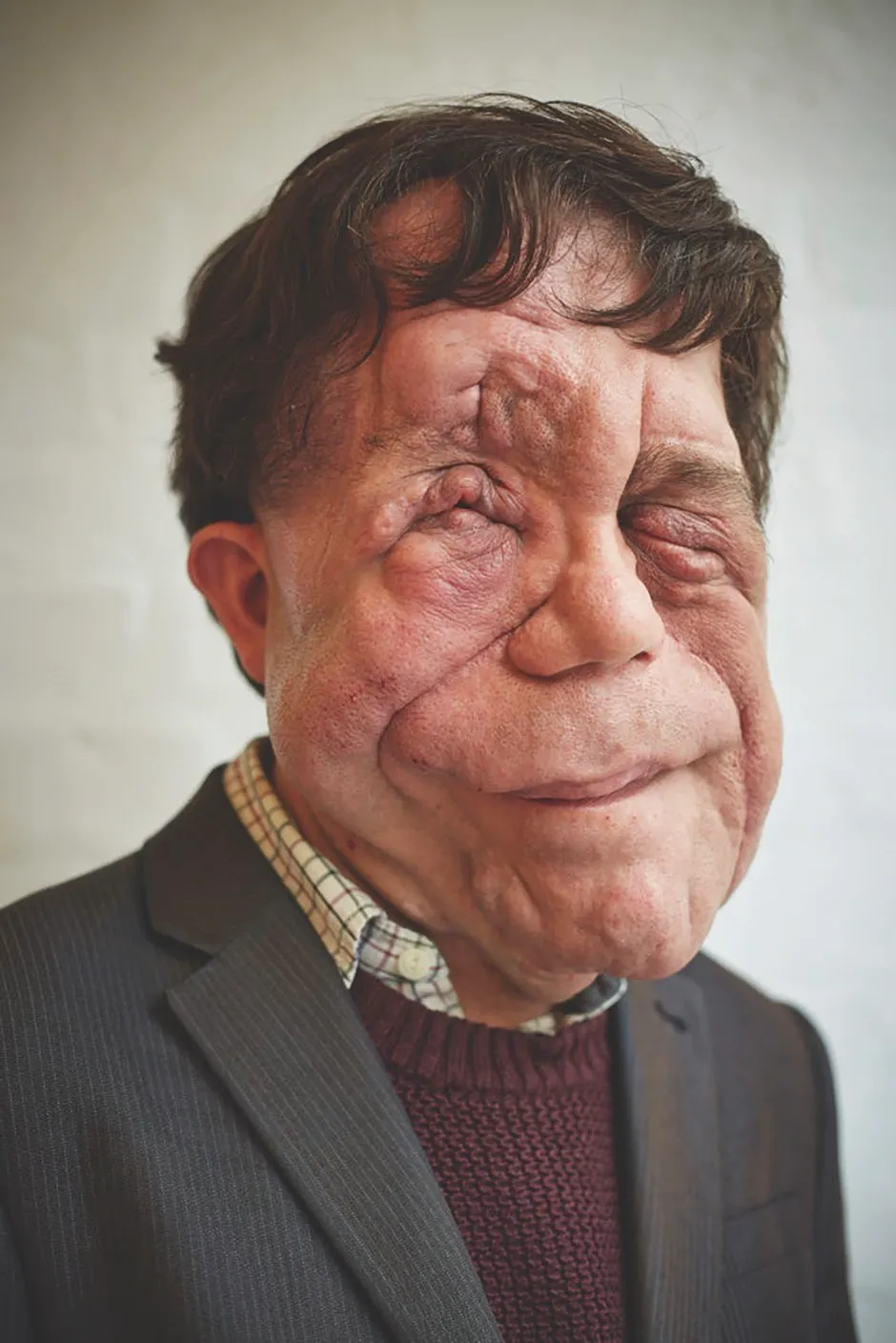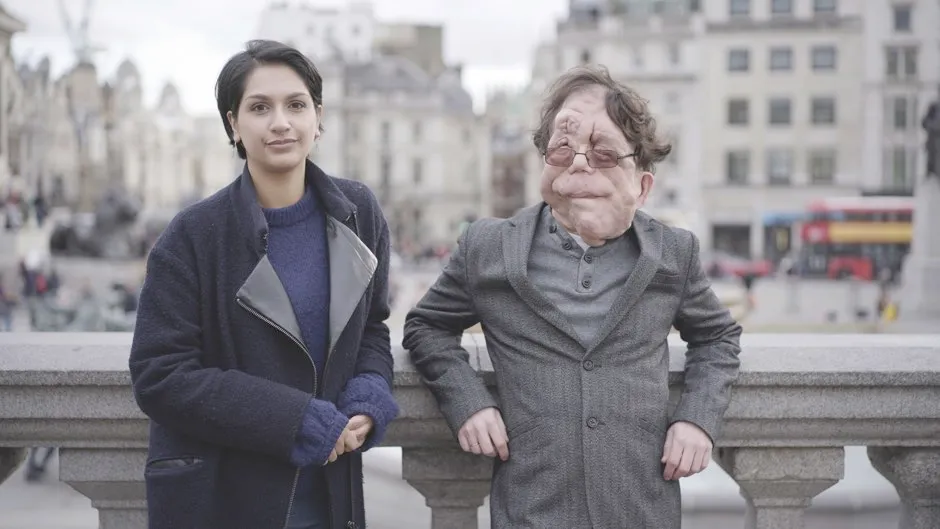In a documentary filmed last year for BBC Four, science journalist Angela Saini and disability rights activist Adam Pearson, investigated the history of eugenics and the lasting impact of the idea.
What is eugenics?
Eugenics is the idea that you can make the human race genetically better by keeping good and desirable genes in the human gene pool, and taking bad ones out.
It started with Francis Galton, Charles Darwin’s cousin. So, I think a lot of his thinking in its roots is Darwinian. But Darwin died before the word ‘eugenics’ was even coined.
What determines what gene is ‘good’ and what gene is ‘bad’?
Well, this is the real crux of not only the programme but the whole issue. I don’t think anyone really has the right to say what genes are and are not good, particularly when it comes to disability and hereditary.
Read more about science's dark history:
- Nazis, magic and McCarthyism: the dark history of early American space exploration
- Wally Funk: a story of sexism in the race for space
What we now know to be true, and what was thought to be true back in the early 1900s, are miles apart. In probably another 50 years, what we know to be true now will be laughable folklore to future scientists.
What did the scientific community have to say about eugenics in the early 1900s?
They were very much in favour of it. It was a case of ‘we’re making the human race better and this will make a better future for everyone concerned’. This was a well-respected science.
It’s well documented that Churchill was a eugenicist. Virginia Woolf was a eugenicist… it wasn’t like it was some crackpot, cultist theory that just stemmed from fiction...
There’s a really haunting Virginia Woolf comment where she’s walked past a line of ‘imbeciles’ and says, “It was horrible, and it would surely be better if they were all put to death.” That was just a regular thing to write down or say. Whereas, if I threw that up on Twitter now, I’d be for it.
But we now know more about what is and what isn’t determined by our genes…
Absolutely. The examples of good genes that [eugenicists] said was in a family, [we know now they] aren’t genetic components. The idea that because you’re from an athletic family, you’re therefore an athlete is ridiculous.
If I was LeBron James’s son but all I did was sit on my arse playing Xbox all day, I’m not going to make it into the NBA in any way, shape or form.

Scientists have spent years looking at educational achievements, trying to find a pattern between attainment and DNA. They have found genetic markers could partly explain how well a person could do at school, but of course a correlation between two things doesn’t mean one causes the other.
These markers might not be related to intelligence, but be more common in more well-off families, who can afford better education.
Galton made other contributions to science, though. He was a statistician as well as a eugenicist.
Oh, Galton was by no means an idiot. But with most scientists, like most people, your greatest triumphs pale in comparison to your greatest flaws or greatest mistakes. No one talks about standard deviation when you hear about Francis Galton, though it was his conception. They always jump to eugenics and those darker things.
I’m not just saying “Ah, Francis Galton, damn you!” I understand what else he did for science and that he has a body of work outside of eugenics. Though eugenics is very much his legacy, it’s a very, very long footnote at the end of an amazing scientific career.
Genetic editing could one day give parents the ability to select for certain traits, like blue eyes, or edit away traits they believe to be undesirable. Could this mark a return to eugenics?
I don’t think eugenics as we knew it, and as Francis Galton designed it. Certainly not in the UK.
I think the rhetoric that surrounds gene editing and CRISPR is what causes a lot of the alarm and hysteria. We hear the term like ‘designer babies’… that’s never going to happen. The science just isn’t there. There’s also a whole wing of science called bioethics, whose sole job is to stop it happening.
Occasionally you get a scientist that will go rogue, like the guy in China who genetically edited babies to be HIV-resistant. But he’s now under house arrest and is essentially a wanted man. Outside of that, those kind of things are very few and far between.
Read more about CRISPR:
So, if ‘designer babies’ aren’t a thing, what issues are there with prenatal testing for conditions?
I’ll use the most common example of Down’s syndrome. Scientists have isolated the two genes that cause the heart defects that are one of the more serious complications that come with Down’s.
If they can repair those two, they’re not screening out Down’s altogether. They’re simply mitigating one of the more severe complications that can come with it. Which I think can only really be a good thing.
However, termination rates following prenatal screening for Down’s syndrome are really high. When I read the literature that they give parents who have a positive test for Down’s… to me, it paints the picture that having a child with Down’s is a death sentence. It’s not kind of warm or fluffy at all, it’s worded like a Stephen King novel.
What does that say about how we treat these kinds of people? Are we as far removed as we think we are from the olden days of asylums and forced sterilisation?
For people like myself with hereditary conditions, we have the ability to scan for faults in embryos. They can remove the bad embryos, the ones that carry the gene causing the condition, to leave only the good ones. It’s an option, but it’s not one that people are forced to take.
It isn’t going to eliminate disability altogether, because that’s not how genetics or disability works. With the genetic component of a disability, there will always be examples of random, spontaneous mutation, and there are things outside of genetics that contribute to disability.
I always say that there are two kinds of people in this world. Disabled people, and people who will be disabled. It’s coming for all of us. I’m sorry that’s not the happiest note in the world to bring up, but it’s completely true.
So, when we have conversations about prenatal testing for genetic conditions, we’re also talking about the people in society living with those conditions.
A lot of it is down to the family, to have their own conversations about whether they want to pass on a genetic condition. It’s not for anyone else to step in.
No, no. Eventually I’ll have to sit down with Lady P, the future Lady Pearson, and have the chat. It doesn’t necessarily haunt me, but it’s something that I knock around in my head. Will I have the testing? Will I not have the testing?
Even outside of that, there are other options. I’ve got a good friend who does a lot of fostering and adoption. Those are certainly things I’d consider.
Learn more about the effect of eugenics on modern algorithms in theScience Focus Podcast:
In all, you know, I’ll make it work, even if we do go down the au naturel route. Nothing’s the end of the world. I crushed it and my kids are going to crush it. My kids are going to be genetically awesome. That will mostly be their mother, though.
You refer to the ‘bad embryos’, which are the ones carrying the genetic condition. That’s the kind of language that people are using at the moment to refer to disabled people.
I know, I know, and I find myself using it all the time. But I don’t want to make the language wishy-washy, I don’t want to start making things too wordy. We both dilute the science and make communication really difficult.
We think the language now is complex – it was even worse back in the day. One of the things we look at [in the programme] is the Mental Deficiency Act of 1913, where people could be legally classified as kind of morons, idiots and imbeciles. [The Act was repealed in 1959.]
There’s a place that we visited in the first episode called Meanwood Park. That was the first of dozens of asylums for those classed as mentally impaired in the UK. It was huge. It was like a military operation, almost.

They kept the sexes apart to stop people breeding. Forced sterilisation had been outlawed in the UK way before this. So, that was how they did it.
We interviewed Harvey Waterman, who was certified under the Mental Deficiency Act at the age of four. Harvey was locked up for 29 years at another asylum called St Lawrence’s, where men and women were also segregated. Harvey said every now and again he’d be allowed to go to a dance, where they were watched like hawks.
There wasn’t a lot that shocked me [in recording the documentary], but when we met Harvey that is the one time where I had to pretend to need the toilet and go and, kind of get myself back together. That’s the first time I’ve ever had to walk out of an interview, rebalance oneself and come back out.
What was it about meeting him that was different?
The story. What happened to this man, this human being. He lost everything. His freedom, his dignity, his future. We’ve just heard a speech from a teenager [Greta Thunberg] saying, “You’ve stolen my childhood and my dreams.” Hold it up to what happened to Harvey, and then come back to me.
Also, just the sheer weight that permeated the whole early part of the programme: this would have been me. No ‘could have been me’, no ‘might have been me’. They’d have come for me, without doubt.
It is so shocking to think about what would have happened just 100 years ago.
Oh yeah, yeah. I would have definitely been in some kind of paddock in the middle of nowhere with ‘my kind’ just doing menial work. It would be really easy to get arrogant and think, “Oh no, I’d have rebelled.” No. No one rebelled. That was the quickest way to get some kind of arse-kicking in those kind of environments.
Learn more about eugenics and racism in science in our podcast with Adam's co-host, Angela Saini:
So, yeah, I think we have come a long way. The debate I want to have is, have we come as far as we think we have, attitudinally, towards disability? Or can we be doing more?
Saying you don’t lock disabled people up any more and saying we accept all people as equals in society are two very different statements.
Are we nearly there?
Ah, we’re getting better. Disability is now on people’s radar a lot more than it was. As long as we keep having discussions and we keep the drawbridge down, then that progress will continue.
My fear now, even outside of the whole eugenics area, is that we make things way too sensitive and start pulling people up on language, which is maybe a bit less relevant in the grand scheme of things. That will slowly bring the drawbridge back up.
You need to give people room to get the words wrong and lovingly and graciously correct them. As opposed to jumping on the old social media and using loads of hashtags to make a point.
Because that can then draw lines between us, it can be ‘them and us’ again.
Absolutely. And then we are right back to square one.
- WatchEugenics: Science's Greatest Scandal on BBC iPlayer.
- This article was first published in the November 2019 issue ofBBC Science Focus Magazine.

